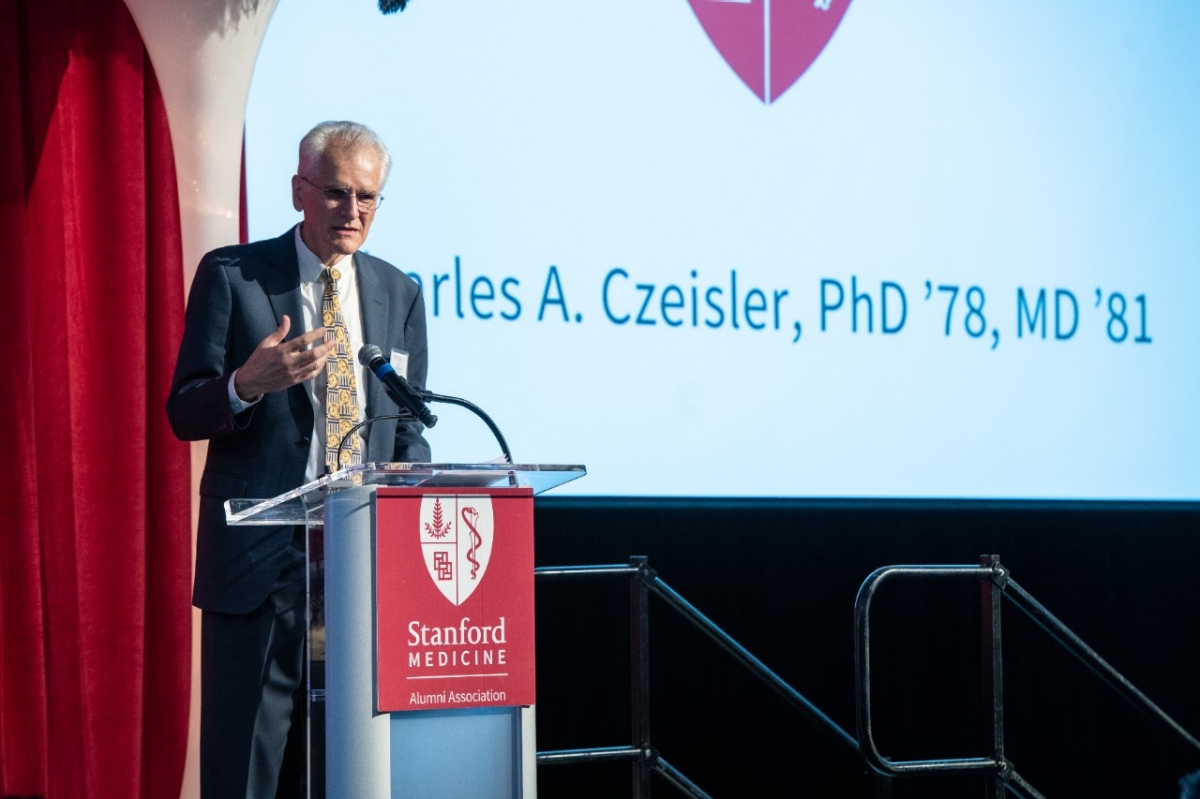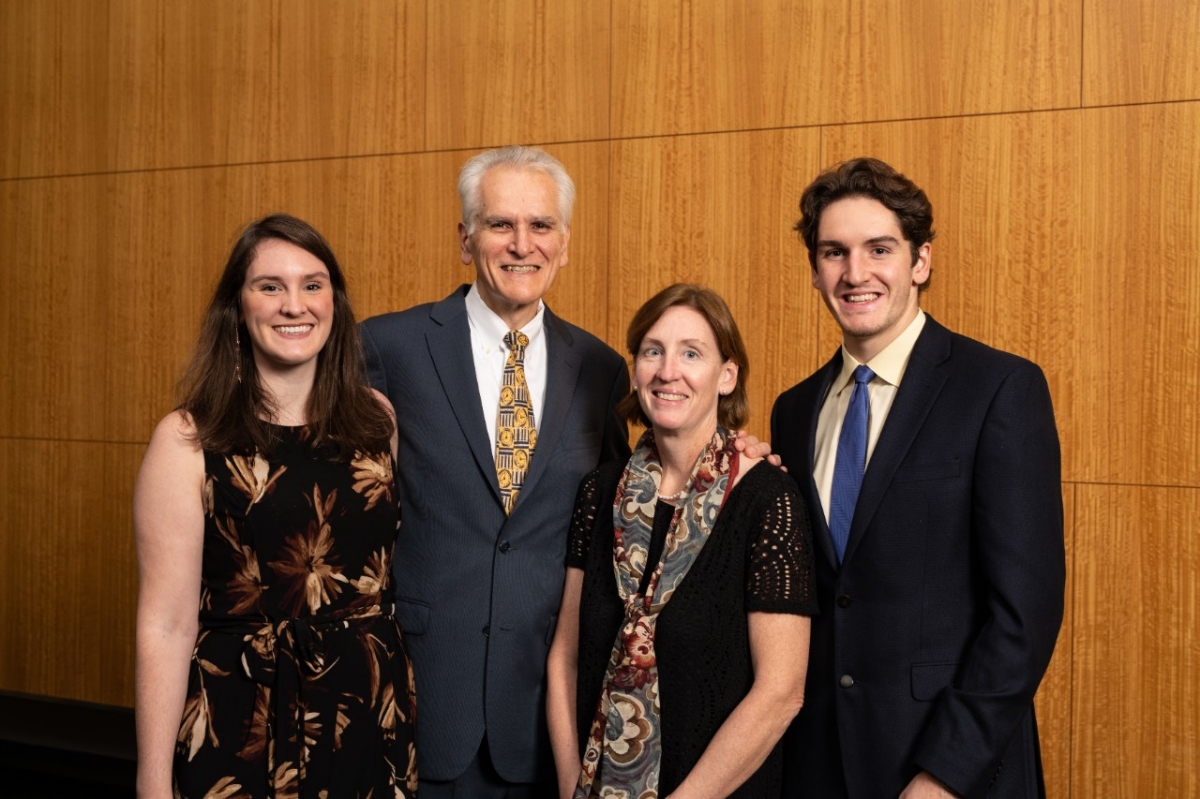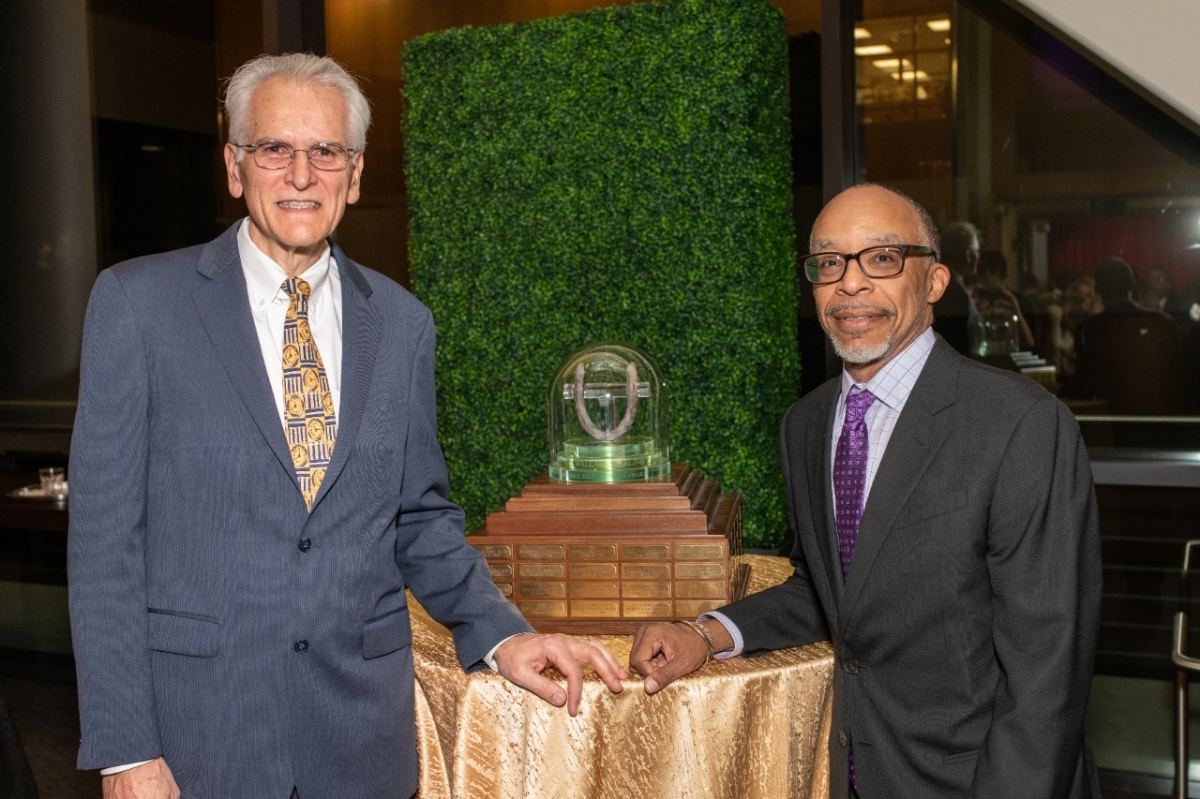
Stanford Medicine Alumni Awards 2019: Charles Czeisler

from Stanford Medicine
The Stanford Medicine Alumni Association has honored Dr. Charles Czeisler with the 2019 J. E. Wallace Sterling Lifetime Achievement Award in Medicine.
About the J. E. Wallace Sterling Lifetime Achievement Award in Medicine:
In the summer of 1953, J. E. Wallace Sterling, president of Stanford University, persuaded the university trustees to move the School of Medicine from San Francisco to the main Palo Alto campus. The school was moved in 1959, and was transformational in its bringing together, in one location, the resources and pioneering breakthroughs of the School of Medicine, Stanford Hospital, and Stanford University. Stanford Medicine grew steadily in national stature until it attained and now holds a respected place in the front ranks of medical education, scientific achievement, and clinical medicine.
Many years following the move to campus, retired faculty surgeon Gunther W. Nagel, MD ’21, proposed that the school establish an award in Sterling’s name to recognize a distinguished graduate. In 1983, the Stanford Medicine Alumni Association Board of Governors conferred the first J. E. Wallace Sterling Lifetime Achievement Award, now presented annually to a Stanford University School of Medicine MD graduate in recognition of exceptional lifetime achievement in medicine.
About Professor Charles A. Czeisler, PhD '78, MD '81:
Charles Czeisler co-founded and directs the Division of Sleep Medicine at Harvard Medical School, where he is the Frank Baldino, Jr, PhD Professor of Sleep Medicine and Professor of Medicine. He also teaches at Harvard College and is founding Chief of the Division of Sleep and Circadian Disorders at Brigham and Women’s Hospital.
After earning his MD and PhD working in the lab of Dr. William Dement, as part of Stanford’s Medical Scientist Training Program, he carved out a new area of occupational medicine on work hours and sleep through a Senior Fellowship in Health Policy at Harvard’s John F. Kennedy School of Government.
While at Stanford, Dr. Czeisler discovered that the brain’s circadian clock regulates sleep and applied his research to improve shift work schedules. He subsequently discovered that light resets the brain’s circadian cycles and characterized fundamental properties of the human circadian pacemaker. He discovered that bright light can effectively treat maladaptation to night shift work, and that melatonin can improve misaligned sleep. He also demonstrated that physicians’ extended-duration work shifts adversely affect both patient and physician safety, earning the NIOSH Director’s Award for Scientific Leadership in Occupational Safety and Health.
Dr. Czeisler currently directs the largest NIH-supported sleep-research training program in the nation, which has trained 63 pre-doctoral fellows, 123 post-doctoral fellows and 49 under-represented minority medical students. He led NASA’s Sleep Team, recording the sleep of astronauts during spaceflight. With his colleagues, he received NASA’s Innovation Award for designing the solid-state lighting system on the International Space Station to improve the sleep of astronauts.
Dr. Czeisler is a member of the National Academy of Medicine and the International Academy of Astronautics, and was awarded Honorary Fellowships by the Royal College of Physicians and the American Physiological Society. He served as Board Chair of the National Sleep Foundation, Chair of the NIH Sleep Disorders Research Advisory Board, faculty for the World Economic Forum (Davos) and Aspen Ideas Festival, and President of the Sleep Research Society.
Photos from the event:




© 2026 by the President and Fellows of Harvard College